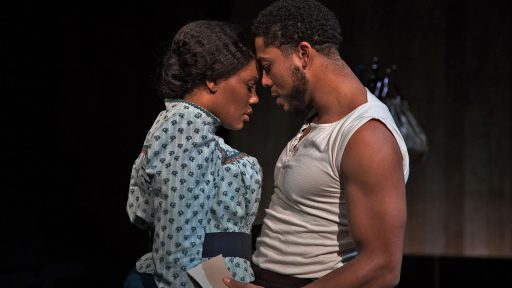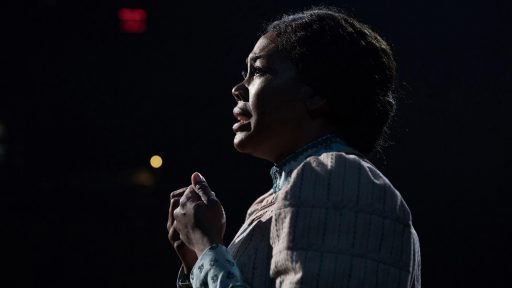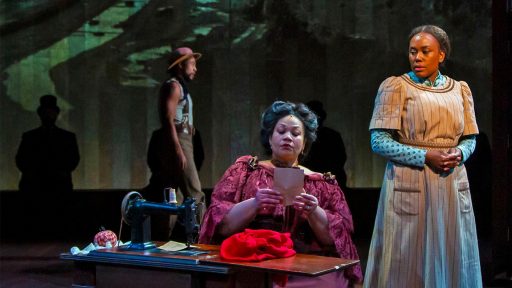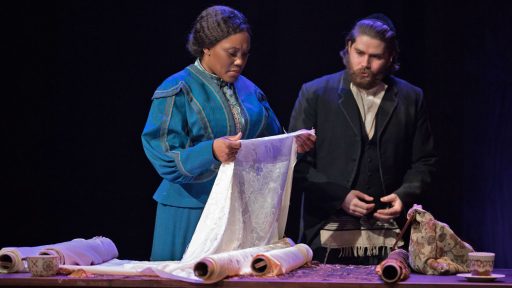Lynn Nottage speaks with the cast members who both have played the title role and how Nottage reimagined her play as an opera.
Features




I think we have to tell stories that connect to people, that people can relate to, that people can say 'Yes, that's me.' And, and not every opera in the cannon can really do that.
The way that these beautiful American stories do.
Hi, I'm Lynn Nottage, I'm the librettist of Intimate Apparel.
I'm Kearstin Piper Brown, I play the role of Esther Mills.
I'm Chabrelle Williams, I also play the role of Esther Mills.
At the center of Intimate Apparel is the character of Esther who is a talented, focused, but lonely seamstress who is looking for love in all of the wrong places.
So she reaches across the ocean to a man in Panama, who she's never met and begins corresponding with him.
And in the first act of the opera, they have this very lovely interaction.
Mm-hmm. And eventually she falls in love with him and he comes over.
And of course he's not the man she had hoped for.
So unrequited.
. Yeah. So it really is an opera about unrequited love.
It's so wonderful that both of you are playing Esther and I'm curious how that came about and what it's like to split a role?
Singing in opera, on its own, is quite a feat.
The emotion, the music, the acting really make it a tough thing to do on a night by night basis, eight shows a week. So it's nice to kind of split it.
So you have a little bit of relief, some time to rest your vocal chords.
So Lynn, what has been the experience of adapting Intimate Apparel into an opera been like for you?
Well it's been very different. I'm primarily a playwright.
And so I'm used to going into my room wrestling with the words independently.
It's been lovely because Intimate Apparel is, um, one of my earlier plays and one of my favorites and I always felt like it's perfect form was an opera.
I was very fortunate to be working with Ricky Ian Gordon, who is an absolutely brilliant composer and also a fantastic teacher.
And he held my hand and walked me through the process of writing a libretto.
It's a chamber opera, we're presenting it with two pianos and really is about nuance and it's gentle.
And we want the audience to feel like they're right inside of the story.
There are not not many, um, roles for African American women in the cannon.
And so when you first encountered the script, what were your feelings?
What were you thinking? Perfect.
I know , it's like, yes, yes. Finally.
It's such a good opportunity for young black singers, black female singers to take upon this role.
And I also see myself in Esther when I first saw the play.
I saw myself in Esther.
I think it's a surprising story. Yeah. You know, um, I I've been over the years really kind of shocked by the people who've been touched by the play and I think that even more people are going to be touched by the opera. Absolutely.
I think so. Yep.
